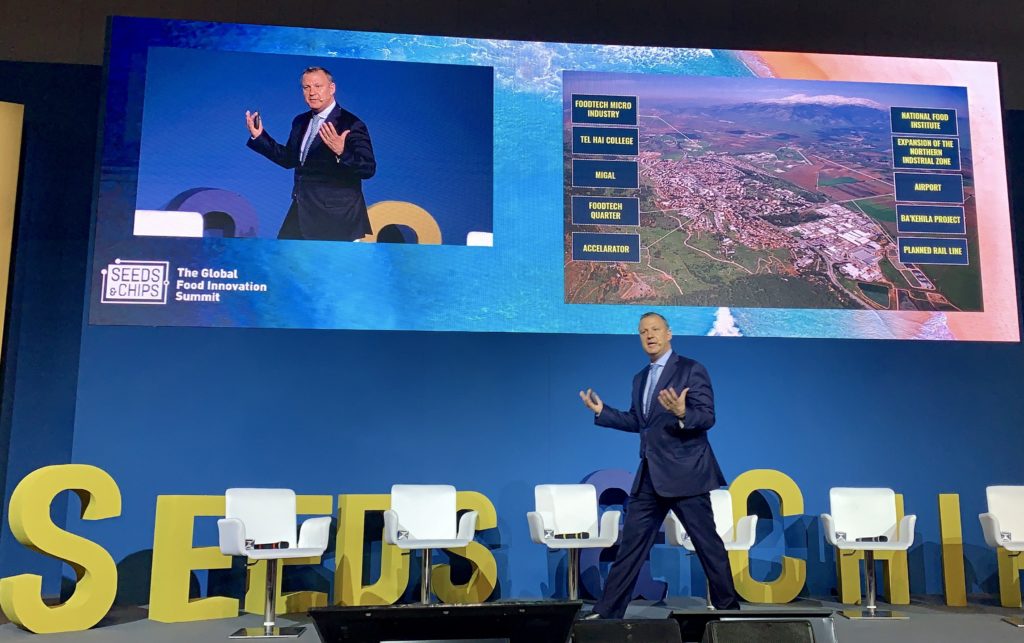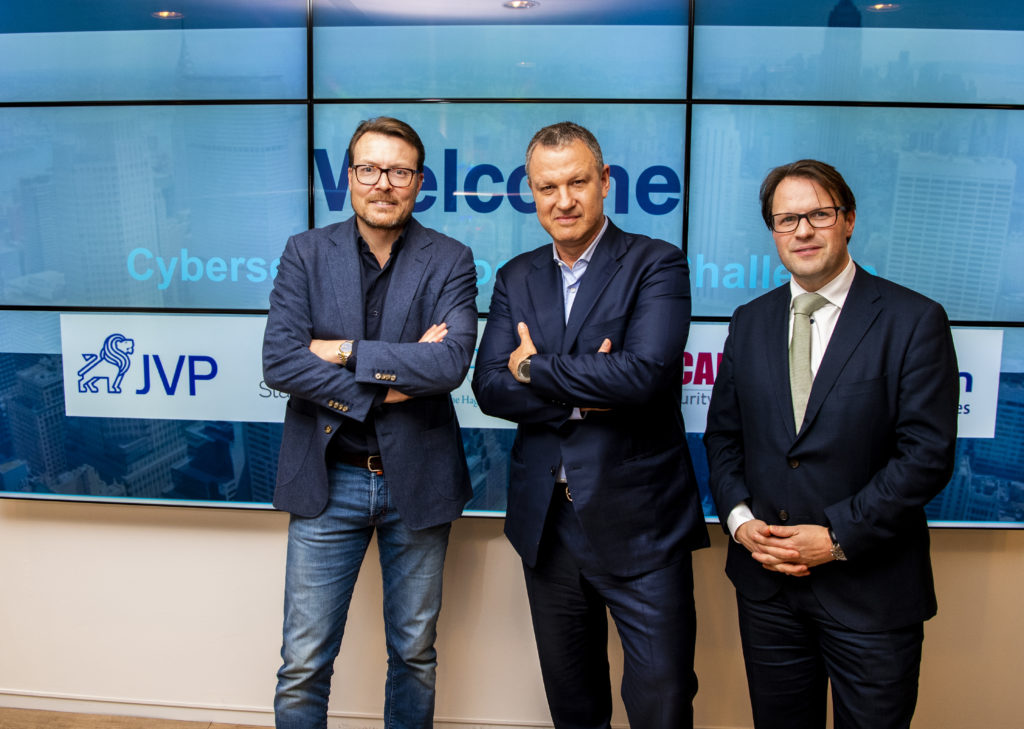
The Marker’s Exculsive Interview with Erel Margalit on Foodtech
Founder & Chairman of JVP and ii2020, considered to be one of the Stat Up Nation Architects, is also one of the most prominent investors in the Israeli Food- Tech scene.
We met Erel Margalit to discuss the Israeli food tech scene, and whether Israel has the potential to become a global leader in the space, as JVP has done with Cyber.
“Erel, as the leader of the Food-Tech scene in Israel in recent years, how prominent do you believe Israel will become in this space globally?
“Over the last 5 years, the Food-Tech category has become a significant component of Israeli High-Tech. I see this trend in the hundreds of entrepreneurs that we meet at JVP, as well as through the dozens of international companies and prominent corporations who are investing in Israeli Food-Tech and Agri-Tech ventures through JVP’s platforms. Today, Israel is at the forefront of the global Food-Tech scene, and that is happening thanks to our ability to connect different disciplines, as well as the focus we have created in entire regions of Israel around Food and Agri-Tech”
“Similar to the endeavors you brought to the Galilee? “
“Exactly. Five years ago, we arrived in the Galilee, and together with local partners, we created a focus in the Kiryat Shmona and the Upper Galilee areas around Food-Tech innovation. This came after extensive analysis of the region’s assets and opportunities, learning more about the advantages that the Galilee has, and the state’s interest in joining this endeavor. The Government supported our program, budgeted for 530 million NIS, and is now under establishment: our Food- Tech Quarter in Kiryat Shmona, technology incubators, accelerators, a food research institute, a unique micro-industrial complex, and a unique incentive package for Food-Tech companies planning on moving their activities to the north of Israel.”
“Where does it all stand today?”
“Our vision is now being implemented. We’ve worked hard building the ideal ecosystem in the North of Israel, and now, leading Food-Tech companies like Water-gen are already moving to the Galilee thanks to the unique incentives offered by the Ministry of Economy and the Capital Investment Authority. In general, our model – not only in the Galilee but also in Jerusalem, in Beer Sheva, and all over the country is a model of Public-Private Partnership, through which we work with the relevant government ministries for our initiatives. And in fact, there is an incredible involvement of government officials. We see more and more Private and Public entities who are choosing to join this initiative of turning the Galilee and Kiryat Shmona into Israel’s Food- Tech center, along with cities like Jerusalem.
“Can Food-Tech become a new economic growth engine for Israel, as is the case with cyber?”
“Definitely, yes. When we started with cyber, there were a lot of raised eyebrows, but we knew that the connection between the vast knowledge of our security industries, and the tremendous creativity of Israeli entrepreneurs, there was true potential to transform the cyber space into real growth generator. Today, we see the results of that process, with companies that were established by Israeli entrepreneurs and are now global market leaders. I believe Food-tech will be the same.
This is due to the unique combination of extensive agricultural knowledge and exceptional technological innovation. We are already seeing Israeli companies who are breaking through with new technologies on a global level, challenging traditional food companies.”
“What sets Food-Tech apart from other categories?
“The ability to create real impact on a global scale; impacting humanity, the planet, and the way we consume food. These are issues that concern the whole world, and Israeli innovation is already in a position to provide new solutions and strategies.”

Could you give an example of innovation that can produce global impact?
“The global meat industry today is a danger to the environment we live in. The horrible fires in the Amazon, for example, were a direct result of the meat industry. Unfortunately, Brazilian cattle breeders are faced with a lack of grazing land, so they’ve begun igniting large woodland areas to create open territories; by that destroying the world’s “lungs.” The way to deal with this danger is to generate new breeding strategies and to develop “cultured meat,” laboratory-made meat, which is produced by in vitro cultivation of animal cells, instead of from slaughtered animals.”
“Around 45% of all agricultural crops in the world today are used to feed the animals we eat, rather than people. We cannot continue this way. You don’t have to be vegan to save the world, but humanity cannot continue slaughtering 50 billion animals a year to provide the world’s food needs. Many Israeli companies are already working on breakthrough developments, and I’m not just talking about meat grown in a lab, but also the production of protein from plants such as vegetables or legumes. These Israeli companies are going to change the dairy and meat industries as we know them. For example, the Israeli company InnovoPro produces non-allergenic, GMO free, tasty and sustainable, 70% protein paste made from chickpeas. The future of meat and milk will be based on these developments. “
As one of the most prominent Israeli investors in the field, what is in your in your deal-flow pipeline?
“The truth is that the foodtech sector is generating a wide range of issues that are going to undergo radical change, but if I have to list the hottest issues then of course, the protein substitute area that, as I said, will change the way we consume food. Smart agriculture, is already changing the agriculture industry across the world with computer vision, sensors, drones and more“.
“The packaging sector, which is an estimated $ 800 million market is undergoing a revolution due to global environmental regulation. This market now requires new strategies such as biodegradable packaging, or “smart packaging” that maintains products shelf life or warns about product quality. This becomes an innovative topic in the medical world today. “
You are talking about foodtech becoming a global impact domain that can change the world, how is the world reacting to what is happening here?
“The world’s reaction is certainly exciting, especially because of the international cooperation we have established around our Food and Agritech initiatives. So far, we have signed 14 collaboration agreements with countries and international entities to source Foodtech investments into Israel. A few months ago, we were delighted to host Constantjin Van-Orange, The Prince of the Netherlands. The Prince is spearheading the field of Innovation in Holland in his position as Startup Envoy at StartupDelta, and together we jumpstarted the partnership between Israel and the Netherlands, known to be a global food powerhouse with international research institutions.”
“We have done the same with other European countries such as Denmark, with which we have built an exposure program with the industry and entrepreneurs in the field; we have also partnered with France on various investment categories surrounding Foodtech. Most recently, we opened our newest innovation Hub in New York, which will be a launching pad for Israeli Foodtech companies into the global market. I have no doubt that the reputation of Israeli innovation, research and agriculture makes the Foodtech category especially attractive, with incredible potential. “


